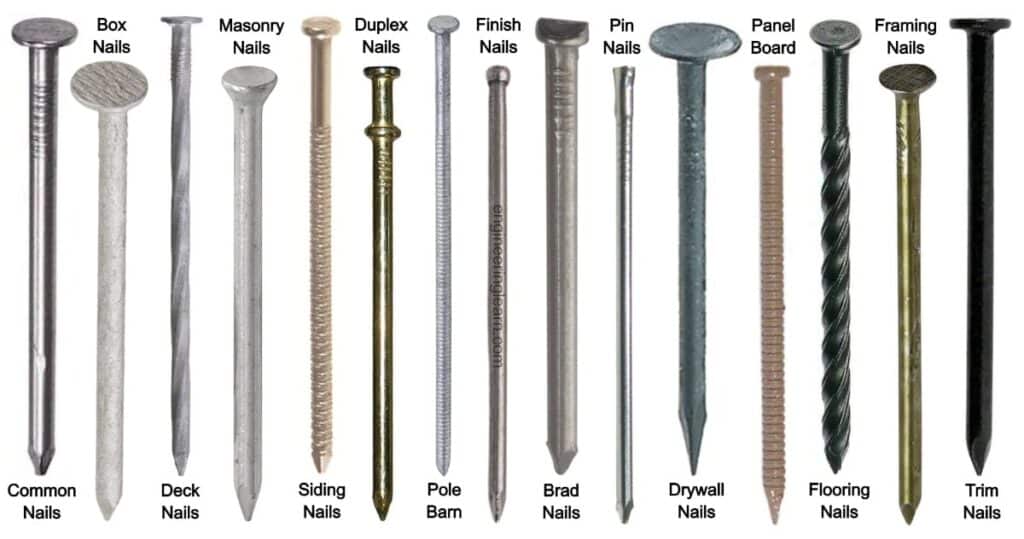
Finishing nails are essential fasteners used in woodworking, carpentry, and construction projects to secure trim, molding, and other finishing materials with precision and elegance. With a variety of types and sizes available, choosing the right finishing nail for your project can make a significant difference in the quality, durability, and aesthetics of the finished product. In this article, we will explore the different types of finishing nails commonly used in the industry, their unique features, and the best practices for selecting and using them effectively in your next woodworking or renovation endeavor.
- Brad Nails:
- Brad nails are thin, small-gauge nails with a slight head that is easily concealed when driven below the surface of the material.
- These nails are ideal for delicate trim work, paneling, and light-duty applications where minimal visibility and nail holes are desired.
- Brad nails are available in lengths ranging from 5/8 inch to 2 inches, making them suitable for a variety of woodworking and finishing tasks.
- Finish Nails:
- Finish nails, also known as casing nails, have a larger diameter and stronger holding power compared to brad nails, making them suitable for heavier trim and molding installations.
- These nails feature a small, rectangular head that can be easily countersunk and concealed with putty or wood filler for a seamless finish.
- Finish nails are available in lengths ranging from 1 inch to 3 inches, providing versatility and strength for a wide range of finishing applications.
- Pin Nails:
- Pin nails are ultra-thin, headless nails that leave virtually no visible hole when driven into the material, making them ideal for delicate and intricate woodworking projects.
- These nails are commonly used for attaching lightweight trim, veneer, and decorative elements where minimal impact on the surface is desired.
- Pin nails are available in lengths ranging from 3/8 inch to 1-3/8 inches, offering precision and subtlety in fastening small components.
- Casing Nails:
- Casing nails are heavy-duty nails with a large, flat head that provides excellent holding power and resistance to pull-out for demanding trim and molding installations.
- These nails are designed for securing thick or hardwood trim, baseboards, and casings to framing or substrates with superior strength and durability.
- Casing nails are available in lengths ranging from 1-1/4 inches to 3 inches, making them suitable for robust and high-impact finishing applications.
- Paneling Nails:
- Paneling nails are specifically designed for attaching paneling, wainscoting, and decorative wall coverings to walls, ceilings, or other surfaces.
- These nails feature a ringed or fluted shank that provides enhanced grip and holding power in wood paneling and other soft materials.
- Paneling nails are available in lengths ranging from 1 inch to 2-1/2 inches, offering secure and reliable fastening solutions for interior finishing projects.
In conclusion, choosing the right type of finishing nail is essential for achieving professional results and ensuring the longevity and integrity of your woodworking or finishing project. Whether you opt for brad nails, finish nails, pin nails, casing nails, or paneling nails, selecting the appropriate size, length, and head style based on the specific requirements of your project can make a significant difference in the quality, appearance, and durability of the finished product. By understanding the characteristics and applications of different types of finishing nails and following best practices for selection and installation, you can elevate your craftsmanship, enhance the aesthetics, and create lasting impressions with your woodworking and finishing endeavors.
Cedar Hill St. Louis Jefferson County Olivette Kirkwood Ballwin Arnold Franklin County St Charles County Fenton High Ridge Dittmer Creve Coeur
